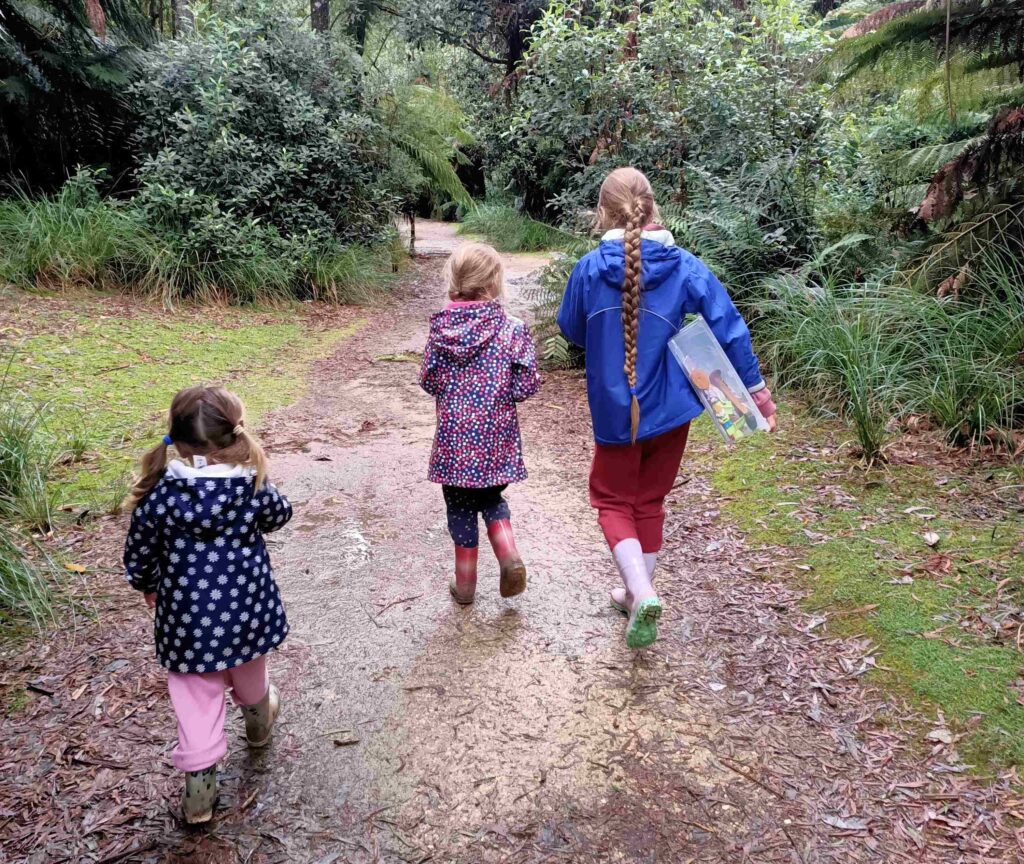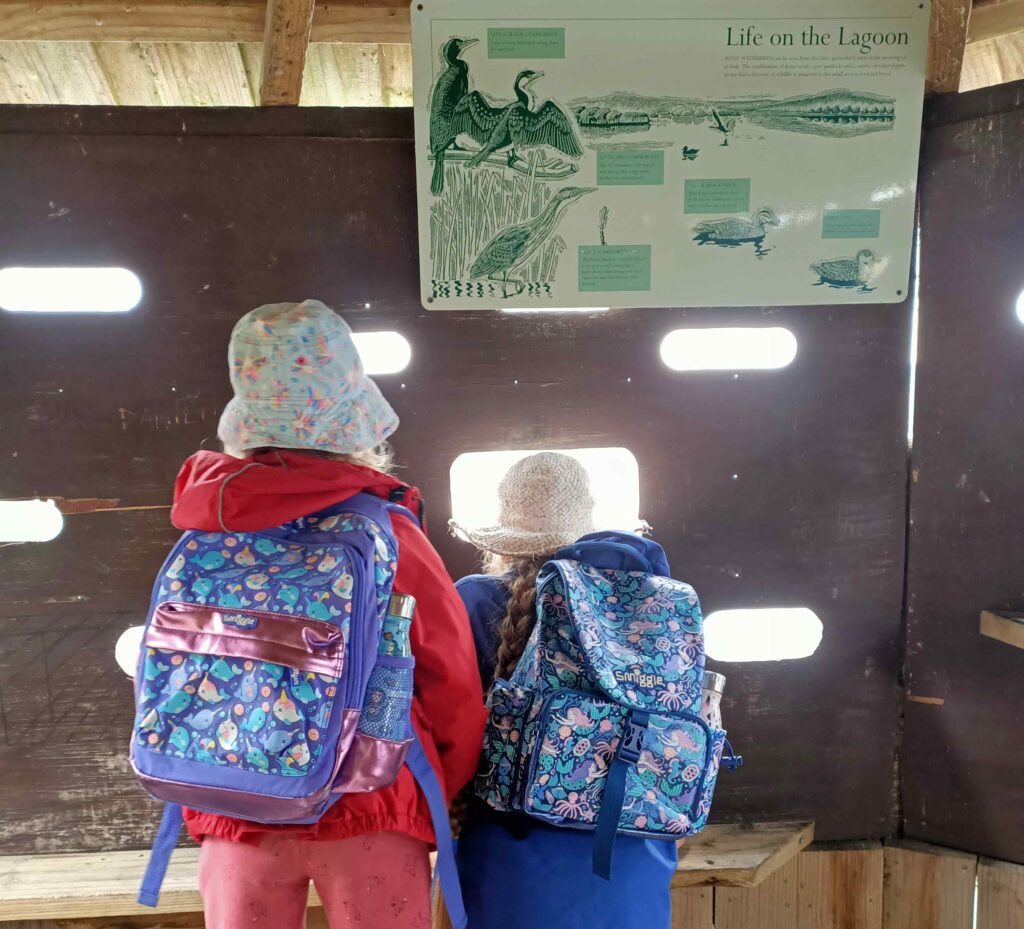
As more and more Australian families embrace the thrilling idea of long-term travel, the question of education naturally comes to the forefront. How do you keep up with your children’s schooling while on the road? Fortunately, there are options that cater to the exploration lifestyle: home education or distance education. In this post, we’ll explore these two approaches to educating on the road, focusing on their applicability in an Australian context, to help you decide which might suit your family’s journey best.
Home Education: Tailored Learning in Your Hands

In home education, parents assume responsibility for their child’s education; taking on the primary role of teacher/mentor for their child. Support or learning resources are not provided to the parent/child from a school or educational department. Whilst this might sound daunting for some, let’s see what this might look like for you.
Benefits of Home Education on the road
1. Flexibility in Learning
Home educating allows you to adapt the pace, style, and content of education based on each child’s unique needs, interests, and learning style. This flexibility means if a child is fascinated by astronomy, you can spend time exploring the night skies, or if a child shows an interest in marine biology, you can spend time exploring the inhabitants of rock pools and snorkelling during your coastal visits – and all of this is included as part of the child’s educational experience
It also means you can easily adjust the timing of your educational activities depending on your travel plans, allowing for a seamless blend of education and exploration.

2. Integration with Travel Experiences
Whether you realise it or not, learning happens everywhere, and travel and learning intertwine beautifully in home education. A journey through Australia isn’t just a series of destinations; it’s a living classroom. The Great Barrier Reef becomes a lesson in marine biology, the Red Centre offers a deep dive into geology and indigenous cultures, and the bustling cities turn into hubs for understanding urban development and history.
This approach brings education out of the abstract and into the tangible, making learning a dynamic and engaging experience.

3. Strengthening Family Bonds
Home educating on the road means learning, playing, exploring, and growing together. Family bonds are strengthened, as you share in the joy of discoveries and the challenges of learning new things.
These shared experiences become the bedrock of lifelong memories.
Challenges of Home Education on the Road
1. Allocation of Resources and Time
There’s no denying that homeschooling requires a significant commitment from parents. Depending on the homeschool philosophy by which you are guided, this commitment could range from planning lessons, sourcing curriculum, engaging in activities, providing access to resources, documenting educational experiences, and much, much more. Home educating, like parenting, demands commitment, love, dedication and creativity.
Despite what some might see as a challenge to home education, this investment in your childrens’ learning and lives can be wholly rewarding. Home education provides a hands-on approach that keeps parents deeply involved in their children’s learning and personal growth.

2. Navigating Legal Requirements
Each Australian state has regulations for home education. For the home educator, this will mean staying informed and compliant; from registration to curriculum standards and periodic reviews.
While this can seem daunting at the beginning, it is very possible, and there is substantial support available from state home education registration bodies, online courses and resources, and seasoned home educating parents.
Distance Education: Structured Learning from Afar
Distance education is a fairly structured approach where children are enrolled in a school that provides educational materials and support, but learning is conducted remotely.

Benefits of Distance Education on the Road
1. Established Curriculum
Distance Education provides a pre-planned, established curriculum which is aligned with state educational standards. Therefore, parents are not required to create, nor source, lessons for their child

2. Support from Professional Teachers

Students receive educational support from qualified teachers, easing the teaching burden on parents.
3. Accountability and Assessment
Regular assessments are conducted by distance education teachers to track progress; monitoring children’s engagement with educational milestones.
Challenges of Distance Education on the Road
1. Less Flexibility
The structured nature of Distance Education means less flexibility is afforded to both the child and travelling family with regards to curriculum studied and time commitments. This will have an impact on the content explored by the child. It can also impact travel plans for the family as there may be specific times for online classes and check-ins which must be adhered to.

2. Dependence on Technology
Reliable internet access is crucial for receiving materials and communicating with teachers in distance education. Additionally, communication between the student and teacher is conducted via screen, which may not suit all families and their values when it comes to time spent on screens and devices.
Making the Choice: Factors to Consider
Deciding between home education and distance education requires considering several factors.
Your Travel Lifestyle: Consider the nature of your travels. Are you constantly on the move, or do you stay in one place for extended periods of time? Do you have a planned travel schedule, or do you enjoy the freedom of more spontaneous travel? Home education can be more adaptable to frequent movement and greater travel flexibility.
Your Child’s Learning Needs: Reflect on the environment in which your child thrives. Some children may seek the routine and external motivation provided by distance education, whilst others may benefit from the personalized approach and ownership of home education.
Your Own Capacity and Comfort: This is an important, but often overlooked, consideration. Assess your capacity and willingness to take on the role of the ‘teacher’ for your child.. Home educating can be incredibly rewarding, but it needs to work for both the child and parent in this relationship.


So which educational path to choose?
Both home education and distance education offer unique advantages and challenges. The right choice depends on your family’s lifestyle and your children’s needs. In Australia, both options are viable and can provide a rich educational experience complemented by the learning opportunities that travel brings.
For us, our choice is home education. As a family who has thrived whilst educating our children at home for the past 6 years, we are looking forward to the experiences that home educating on the road will bring for us. Home educating, for us, isn’t just an educational choice; it’s a lifestyle that brings immense joy and fulfillment to our family dynamics. As parents, we assume the role of mentors, but it’s so much more than that. We become explorers, learners, and dreamers alongside our children. Our approach to home educating on the road is imbued with our love for personalized education and the unique bond it fosters within our family.
However, no matter which path you choose for your family, remember that education on the road is not just about academics; it’s about the life lessons, adaptability, resilience, and the broader view of the world that your children will gain. Here’s to learning, no matter where the road takes you!
